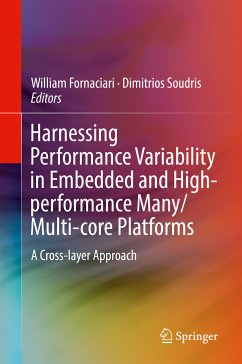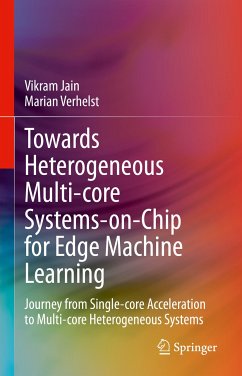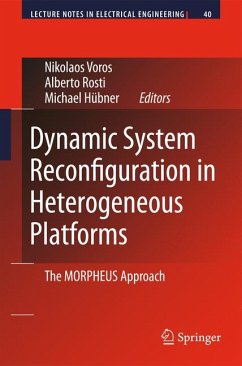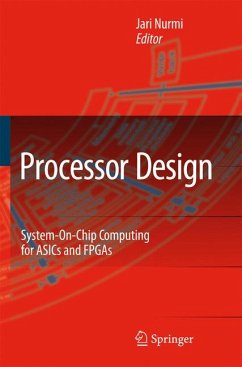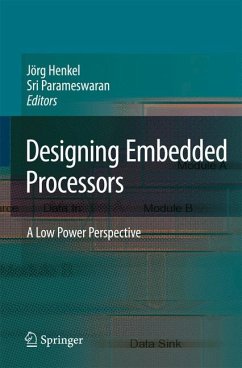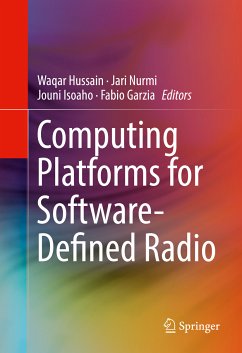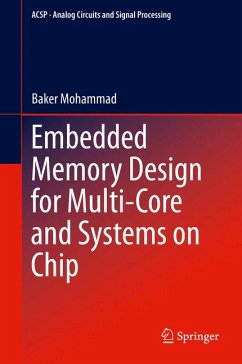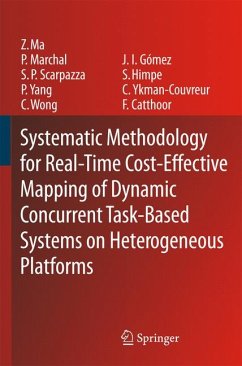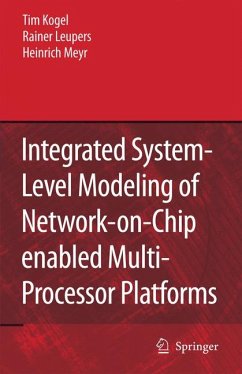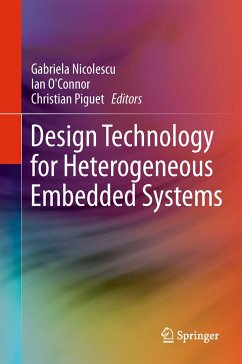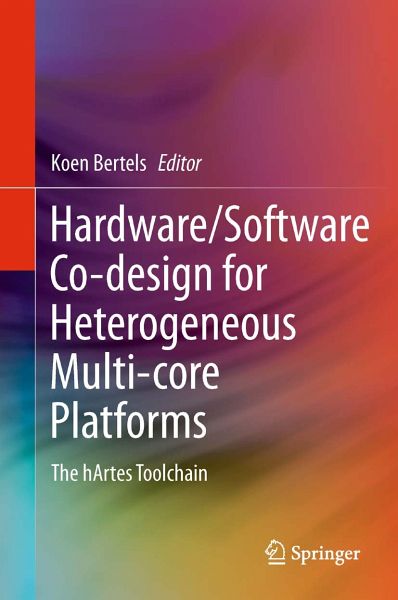
Hardware/Software Co-design for Heterogeneous Multi-core Platforms (eBook, PDF)
The hArtes Toolchain
Redaktion: Bertels, Koen

PAYBACK Punkte
36 °P sammeln!
HW/SW Co-Design for Heterogeneous Multi-Core Platforms describes the results and outcome of the FP6 project which focuses on the development of an integrated tool chain targeting a heterogeneous multi core platform comprising of a general purpose processor (ARM or powerPC), a DSP (the diopsis) and an FPGA. The tool chain takes existing source code and proposes transformations and mappings such that legacy code can easily be ported to a modern, multi-core platform. Downloadable software will be provided for simulation purposes.
Dieser Download kann aus rechtlichen Gründen nur mit Rechnungsadresse in A, B, BG, CY, CZ, D, DK, EW, E, FIN, F, GR, HR, H, IRL, I, LT, L, LR, M, NL, PL, P, R, S, SLO, SK ausgeliefert werden.




